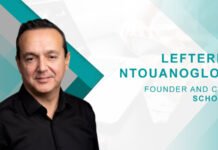Paul, please elaborate on the significance of assessing candidate integrity in the hiring process, especially amidst optimistic hiring trends and the influence of AI-driven recruitment.
Ensuring candidate integrity is paramount for any organization, especially amidst the current surge in hiring and the prevalence of AI-driven recruitment processes. Integrity forms the foundation of trust within an organization. Hence, it’s imperative to emphasize to employees the significance of upholding ethical standards outlined in the code of conduct. They must be made aware that their commitment to honesty and responsibility in their job roles directly contributes to maintaining the organization’s esteemed reputation in accordance with company policies.
Low integrity within an organization poses significant risks, including increased probabilities of financial losses, legal liabilities, negative publicity, reputational damage, and compromised data security. Conducting integrity assessments plays a crucial role in mitigating these risks by identifying candidates who are less likely to engage in dishonest behavior or other forms of misconduct. By proactively assessing integrity, organizations can safeguard themselves against potential harm and maintain trustworthiness in their operations.
Integrity is frequently intertwined with cultural alignment. Recruiting individuals whose values resonate with those of the organization not only fosters employee engagement and productivity but also enhances retention rates. Additionally, assessing integrity ensures that candidates are more likely to align with the company’s culture, thereby promoting a positive work environment and facilitating harmonious relationships within the organization.
Integrity extends beyond internal organizational dynamics and can positively or negatively impact interactions with customers or clients. Employees who demonstrate integrity not only earn the trust of customers but also have the potential to cultivate strong relationships, leading to increased customer satisfaction, repeat business, and positive referrals through word of mouth.
Despite the optimism surrounding hiring trends and the efficiency of AI in recruitment processes, the significance of assessing candidate integrity remains paramount. While AI streamlines certain aspects of hiring such as resume screening and candidate matching, it cannot wholly replace human judgment.
Integrity, being a nuanced characteristic, often eludes objective measurement. However, it remains essential in the hiring process. Thus, incorporating methods such as behavioral interviews, reference checks, and integrity assessments can help mitigate the risk of risky hires, ensuring that candidates align with the organization’s ethical standards.
What practical methods do you recommend for effectively evaluating candidate integrity during interviews, and how does it contribute to aligning hiring decisions with the positive outlook of 2024?
As the candidate speaks, attention must be placed on their body language. From time to time, nonverbal signs such as eye contact (or lack thereof), body position, and facial expressions can clearly reflect honesty or underlying potential problems.
Obtain references about work ethic, honesty, and integrity through their former employers and co-workers. Throw some of the questions their way — ask them about their behavior in the workplace, share with them some hypotheticals of an ethical kind of decision, and observe their reactions since the answers from such questions will be very revealing concerning their thought process and moral compass. Have the candidate define what integrity means to them in the workplace and then require that they refer to specific situations that have happened in their past experience based on that definition where integrity would be put to the test.
You might also find it useful to employ integrity tests in your recruitment process. These tests measure characteristics such as reliability, honesty, and conscientiousness in a job candidate that are likely to predict integrity at work.
With such methods in place, you can make decisions that are more informed about the integrity of your candidate to better align hiring decisions with the positive outlook of 2024. Bringing principled individuals who display integrity on board will bring out a successful culture based on trust and accountability in an organization.
In your experience, how does candidate integrity impact organizational culture and contribute to long-term success, and what specific aspects should organizations consider when assessing this quality?
Integrity serves as the cornerstone of a successful business and a cohesive team. A business known for its integrity earns trust and reliability, fostering a conducive environment for collaboration and innovation. Therefore, it’s imperative for businesses to evaluate a candidate’s history of honesty and their ability to collaborate fairly with others.
A business’s reputation and the trust it garners from its stakeholders are crucial for outperforming competitors. Assessing a candidate’s trustworthiness and commitment to fairness is essential for maintaining the integrity of the team and ensuring compliance with regulations, thus safeguarding the business from potential pitfalls.
Integrity is especially critical for leaders, as they set the example for the team to follow and must navigate difficult decisions with integrity intact. Evaluating a candidate’s moral compass and their ability to make sound decisions, particularly in challenging situations, is paramount for selecting effective leaders.
Businesses can gauge a candidate’s integrity through probing questions, scrutinizing their past experiences, and observing their decision-making process. Prioritizing integrity in hiring decisions lays the foundation for long-term success and resilience in the face of challenges.
Could you share insights into the questions interviewers should ask to uncover candidates’ ethical decisions and gain a deeper understanding of their integrity?
To assess an individual’s integrity and ethical decision-making, delve into scenarios involving tough choices and responses to wrongdoing. Pose questions about instances where they confronted moral dilemmas, observing how they applied their principles to navigate challenging situations both professionally and personally.
Furthermore, inquire about their approach to addressing unethical behavior in the workplace and how they take ownership of their mistakes. To evaluate their integrity under pressure, explore experiences where their moral compass was tested and how they handle sensitive information or collaborate with individuals holding diverse beliefs.
Lastly, gain insight into their personal understanding of integrity. Encourage them to articulate their definition of integrity and provide examples of how they integrate it into their professional conduct.
How can interviewers encourage candidates to articulate their values and demonstrate alignment with organizational standards during interviews?
Interviewers can facilitate discussions around the company’s core values and their influence on decision-making, thereby creating a platform to explore integrity. They can inquire about past experiences to assess candidates’ track records in making ethical decisions and demonstrating effective leadership.
Encouraging open dialogue that fosters mutual exchange allows candidates to articulate their beliefs and rationale behind difficult choices. Through active listening and providing a supportive environment, interviewers can evaluate the alignment between a candidate’s values and those of the company, ensuring a harmonious fit.
Why do you believe ongoing training for interviewers is crucial in recognizing and assessing candidate integrity? What strategies do you recommend for interviewers to stay updated on evolving ethical considerations and hiring best practices?
Continuous training and coaching for interviewers is indispensable for evaluating and assessing the integrity of job candidates, which is pivotal for nurturing a culture of integrity and ensuring the ongoing success of the organization. As hiring practices evolve, interviewers must stay abreast of new methodologies to effectively identify candidates who align with the organization’s values.
Regular training sessions focused on integrity and best hiring practices, conducted by industry experts through workshops and classes, provide interviewers with fresh insights into candidate selection and innovative hiring approaches. Additionally, engaging in professional literature and online courses aids in staying current with industry trends and developments.
Furthermore, fostering a culture of knowledge sharing among interviewers within the organization encourages collaborative learning and promotes the exchange of best practices. By embracing continuous learning initiatives, interviewers can adeptly identify candidates possessing both the requisite skills for the job and the integrity vital for the organization’s long-term prosperity.
Beyond traditional behavioral interviewing techniques, how can interviewers expand their toolkit to assess integrity, and what innovative approaches do you recommend for gaining a comprehensive understanding of candidates’ ethical values?
To comprehensively evaluate a candidate’s integrity, interviewers can employ innovative techniques such as role-play exercises and peer interviews. Thoughtful and effective role-play exercises immerse candidates in simulated scenarios that necessitate ethical decision-making, allowing interviewers to observe firsthand how candidates navigate complex dilemmas, manage conflicts, and uphold values when faced with pressure. This interactive approach offers insights into a candidate’s ability to apply theoretical knowledge of integrity to practical situations, providing a holistic assessment of their ethical aptitude.
Considering the challenges of evaluating integrity in virtual interviews, how can organizations adapt their assessment methods for remote settings? What role does technology play in scenario-based assessments in a virtual environment?
Transitioning assessment methods to evaluate integrity in virtual interviews demands careful adaptations and leveraging technology to uphold the efficacy of the evaluation process. This entails utilizing video conferencing platforms not only for dialogue but also for facilitating role-play exercises and scenario-based assessments that replicate real-life ethical dilemmas. Such an approach affords interviewers deeper insights into a candidate’s decision-making abilities within a controlled, virtual environment.
As a global authority and thought leader, what advice do you have for organizations looking to ensure consistency in ethical evaluations across different work environments, especially in diverse cultural contexts?
Ensuring consistent moral judgment across diverse locations necessitates a strategic approach that reconciles cultural variations with universal ethical standards. My first recommendation for groups is to establish a framework of universal ethical principles adaptable to the nuances of each cultural setting, which is then clearly communicated and integrated throughout the organization, including in the selection of new members.
Providing comprehensive training for those tasked with selecting new members is paramount. This training should equip them with the skills to consistently apply ethical principles while respecting the cultural diversity inherent in each location. Moreover, they should possess a deep understanding of local customs, language, and cultural norms, as these factors profoundly influence communication and decision-making processes.
Could you share a personal or professional anecdote that highlights the impact of candidate integrity on hiring decisions and organizational success, drawing from your extensive experience as a speaker, trainer, and executive coach?
It’s important to note that background checks and references, while useful for gaining insights into a candidate’s qualifications and reputation, might not always reveal information about their integrity. Companies should adopt diverse methods to ensure they are well-equipped to evaluate candidates comprehensively. This entails implementing a holistic approach that considers candidates’ past experiences, ethical decision-making abilities, and alignment with the company’s values.
By incorporating various evaluation criteria, companies can make more informed hiring decisions that prioritize both skillset and cultural fit. For example, backchanneling is the practice of seeking additional information about a job candidate from sources beyond what is provided through official channels, such as resumes, interviews, and references.
I worked with one such company where we were looking for a very crucial managerial position. We selected two candidates who appeared quite equal in their qualifications on paper, but then on the very last occasion of interviews, one of the candidates showed a surprising display of integrity.
Answering one of the hypothetical questions on conflict of interest, this candidate very openly shared how they had handled a similar situation in a previous place of work. They proceed to outline exactly what steps they took to handle the conflict in an open and ethical manner, even if this implied jeopardizing their very own career advancement within the company. Conflicts of interest can be tricky because they inherently involve a clash between personal interests and professional duties. Handling such conflicts openly and ethically is essential for maintaining trust and integrity within the workplace while minimizing personal risk at the same time.
This display of integrity left a positive lasting impression on the interview panel. This person was truly leading like a PRO and we could confirm that through backchanneling. We eventually chose them among other applicants with equal qualifications and, after some time, the suitability of our choice became quite clear. The integrity of that leader cascaded down in their leadership style to develop trust and transparency within the team.
This experience taught me and the leadership team that although skills and experience are important, integrity is one of the foundational traits that make a difference in organizational success. It wasn’t merely for the sake of getting the work done; it was in being able to do so honestly, ethically, and with a commitment to doing the right thing — even if it was going to be hard.
Explore HRTech News for the latest Tech Trends in Human Resources Technology.

Paul Bramson Keynote Speaker and CEO at The Paul Bramson Companies
Paul Bramson is widely regarded as one of the most impactful and gifted keynote speakers and trainers globally. He consistently delivers compelling talks and training workshops that leave a lasting impression. Paul is recognized as a thought leader in the areas of leadership, communication, and sales. He has over 25 years of experience inspiring all levels of professionals, leaders, and teams. Paul’s ability to captivate and entertain audiences stems from his genuine passion, unique talents, and commitment to being better.












